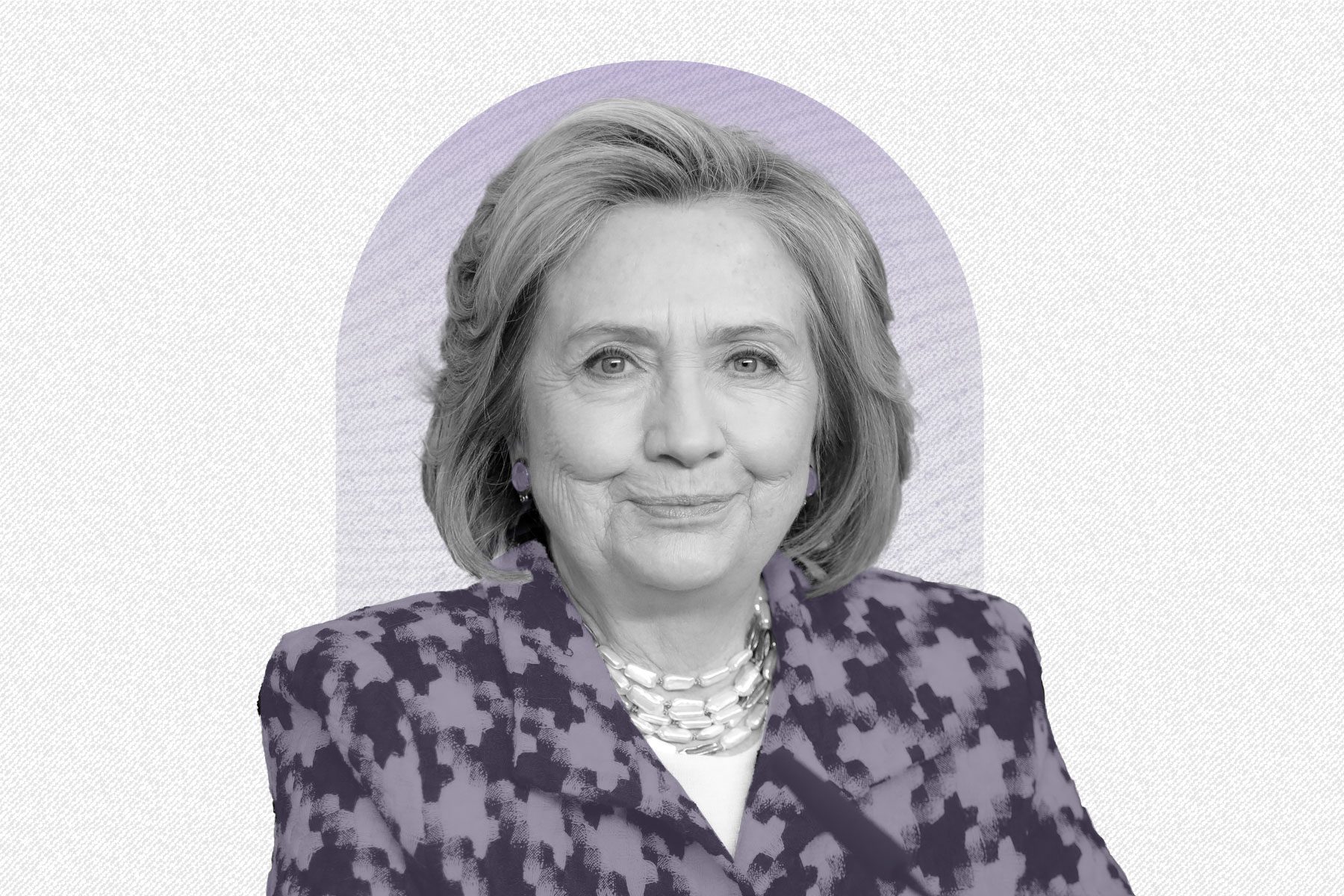The idea for The 19th was born out of the 2016 presidential election — specifically, Hillary Rodham Clinton’s loss to Donald Trump and the coverage and discussion of their campaigns. The race highlighted issues around gender and our politics that preceded it and remain today.
Clinton is someone I was interested to talk to about the midterm elections, as well as 2024. On Thursday, I interviewed Secretary Clinton virtually as she prepared to host the Women’s Voices Summit in Little Rock, Arkansas. The daylong conference Friday is focused on voting rights, health care and global issues — all topics I also wanted to dive into with her.
In a wide-ranging discussion, Clinton weighed in on women’s representation at the ballot box and in elected office, the fight for fundamental rights, and Vice President Kamala Harris’ performance and her prospects should she be a candidate for president again in two years. I also asked her about the former president — her onetime opponent — and his bid to return to the White House, as well as why she still believes women’s rights are human rights that all of us should care about. (You can watch our full conversation here.)
“I really, truly believe that when women are denied their basic rights anywhere, it gives heart to those who want to take away rights somewhere else,” Clinton said.
In her assessment of our politics and democracy, Clinton sees gains and potential peril — but also opportunity to continue to change power dynamics at home and abroad. In her championing of women, she also offered a clear-eyed perspective on how she does and does not view progress.
And while she said she “hopes” the country elects its first woman president in her lifetime, she added: “I hope it’s the right kind of woman.” To her, that’s someone who protects women’s rights and voting rights, who understands the stress on working moms and is on the side of positive change.
“I think you’ll see women on the Republican side running this time, and they’re not women I would ever vote for, to be honest,” Clinton said. “I’m thrilled that they would run, but I’m not going to vote for a woman who would take my rights away, or my daughter’s rights away, or my granddaughter’s rights away.”
She is optimistic that a candidate committed to a fair and equal democracy exists. “We’ll get there, I just don’t know when. But I’m hoping soon, sooner instead of later. I want to be around.”
In last month’s midterm elections, women were again the deciders, galvanized to turn out by a range of priorities that included abortion rights, the economy, gun violence and inequality. Women made historic gains at the gubernatorial level and held the status quo in Congress — where they are boasting their largest numbers in the country’s history.
Clinton pointed to victories for measures that would protect abortion access in Kansas, Michigan and Kentucky.
She said women in the midterms sent a clear message: “We’re not going back.”
“If we don’t have representation and we don’t have women’s voices helping to shape the debate, then we leave a vacuum,” Clinton said, but added that she believes more candidates committed to women’s issues are also part of the key to progress.
“It’s important not just for women to run, but for women who do run to be committed to the women’s rights agenda, to the democracy agenda, to be on the side of making it easier to vote, to ensuring that the votes are counted correctly,” she said.
Clinton also encouraged women to follow in her footsteps and run for office.
“This is a time, if you ever thought about your own place in society, the rights that you have, the rights that our foremothers fought for over so many years, for you to at least vote, but maybe even think about running for something,” she said.
Clinton reflected on barrier-breakers like Democratic House Speaker Nancy Pelosi, who is passing the leadership baton in the new Congress, and gave “high marks” to Harris in her historic first two years as vice president.
She called Pelosi “one of the most consequential people in American history,” praising her ability to wrangle her caucus as speaker. Clinton noted that Pelosi will likely be a sought-after adviser to a new generation of congressional leaders.
Clinton said Harris should get credit along with President Joe Biden for what the administration has accomplished.
“It’s always hard to be the first — I’ve got the scars to prove it — she knew it was going to be a hot spotlight,” Clinton said. “I think she’s handled herself with real grace and done what she could to make sure that the president’s agenda has been quite successful.”
While she believes Biden will run for reelection in 2024, Clinton said that if he doesn’t, Harris is “well-positioned” to win the Democratic presidential nomination. But, Clinton added, Harris would “have to fight for it,” and said she thinks Harris is “more than up to the task.”
“I think she would certainly start off ahead. But you know, as I know better than most, campaigns are funny, funny things,” Clinton said. “So we’ll see how well she can run, based off of her record and the accomplishments that she helped President Biden achieve.”
Clinton’s eye toward 2024 also includes her former rival and his bid to return to the White House. But she noted that while support from Trump’s base remains strong, she sees the upcoming contest for the GOP as “a free for all” as his influence has waned. Clinton called Trump a “cancer on democracy.”
“It would be to the country’s advantage if he did not get out there again and stir up a lot of very inflammatory rhetoric again, setting people against each other,” said Clinton. “I don’t think he will get a free pass.”
Clinton said the erosion of rights for women and marginalized communities is “a reminder that no political victory or defeat is permanent” and that voters must stay vigilant. She said holding the summit in Arkansas, where abortion is a felony without exceptions for rape or incest, is another opportunity to continue the fight.
“It’s a place where I feel very comfortable having this conversation, and I hope more people will keep talking in other places across our country,” said Clinton, who was also first lady of the state when her husband, former President Bill Clinton, served as governor.
“If we walk away from half of our states and we say it’s too hard, or they’ve already made up their minds, we are giving up on the opportunity for reform and change,” she continued. “We may not have the political power right now to make those changes, but you’ve got to keep working. You can’t walk away because it’s hard. It’s supposed to be hard, or we wouldn’t have these debates about what we’re trying to achieve.”
Clinton told me her concerns about threats to democracy and women’s rights are both domestic and global. The former secretary of state, who also highlighted gender issues on the world stage as first lady of the United States, elaborated on her recent remarks regarding the Iranian uprising in the wake of 22-year-old Mahsa Amini’s death in September that “their fight is our fight.”
“The forces against women’s rights are still everywhere around us,” Clinton told me. “I do believe there is a struggle between democracy and autocracy. We see what’s happening in Afghanistan, in Iran, where young women are leading a revolution to try to throw off the yoke of oppression.”
Clinton pointed out that she warned in 2016 that Trump and his allies would attempt to roll back rights — and then they did.
“Left to their own devices, they’re gonna try to undermine voting rights, and keep on trying to prevent women from getting the health care that we deserve to have and so much else,” she said.
It’s important to stay vigilant and not take rights for granted, Clinton said. While she is no longer on the ballot, Clinton at 75 is still in the fight. The questions of representation and how our rights are discussed, in politics and in the media, remain relevant six years after her defeat — questions The 19th was created to confront.





